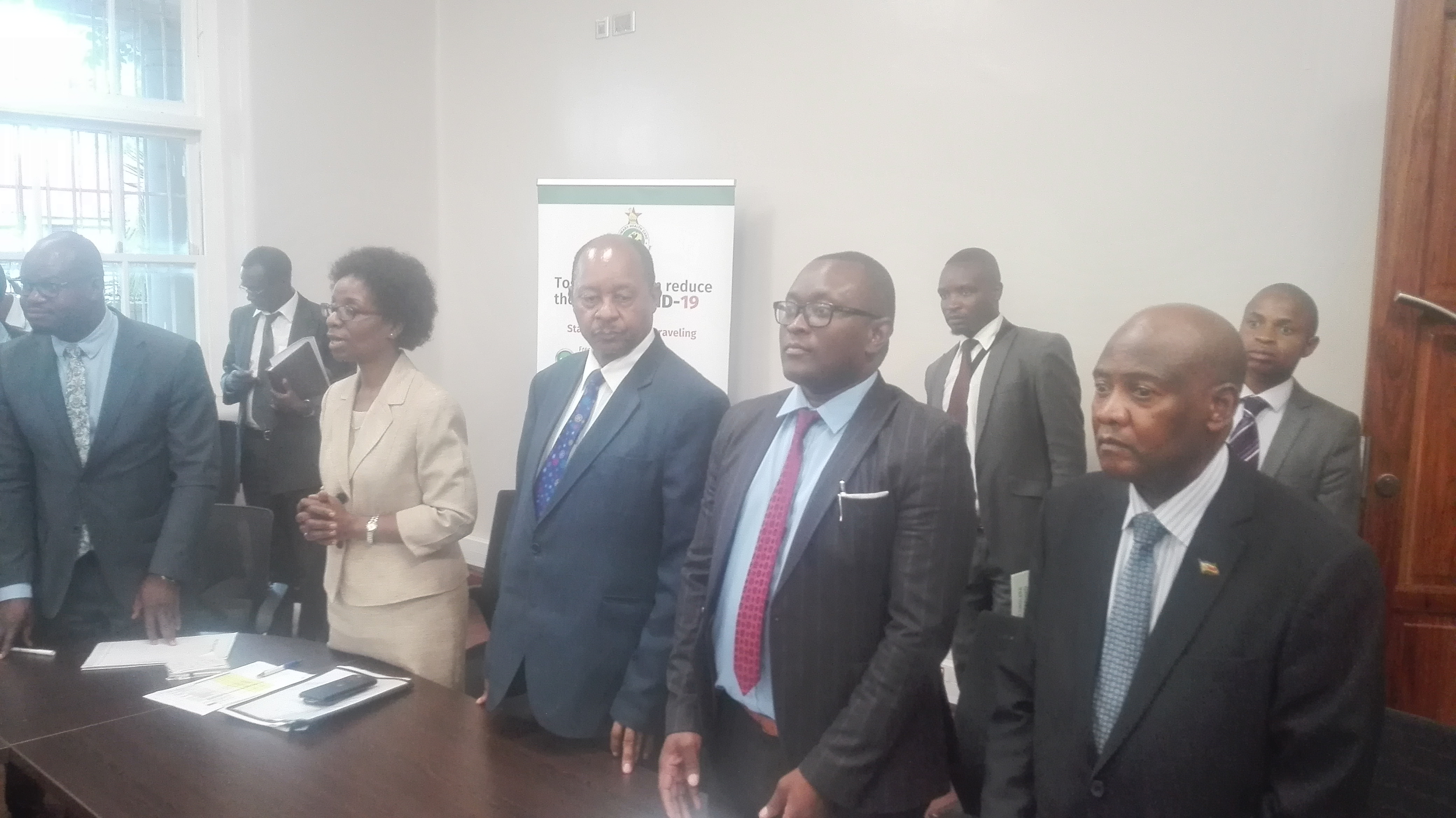By Anyway Yotamu
In an effort to combat the spread of coronavirus, mobile telephony operators heeded the government’s call by coming up together towards promoting e-health by donating equipment in Harare on Monday the 23rd of March 2020.
The equipment, which is meant to operationalise the national emergency response centre include computers, servers, mobile handsets, toll-free mobile and landlines, shortcodes and bulk SMS for the novel disease.
Potraz, Econet, Netone, Telecel, Liquid Telecoms and Telone donated the equipment which was handed over to the Minister of Health and Child Care, Dr Obadiah Moyo by the Minister of ICT, Postal and Courier Services Jenfan Muswere.
Dr Moyo said while Government was working towards procurement of protective clothing equipment for health workers, telehealth was an approach his ministry was looking forward to intensifying to reduce chances of spreading the virus to uninfected people.
“We do appreciate the donation by the telecommunications industry and indeed, this is the way we want to go so that we reduce the risk of transmitting the virus from infected to uninfected persons,” said Dr Moyo.
He said Government was concerned by the safety of all its frontline health workers and was working on procuring additional personal protective equipment.
“It is very essential in this particular pandemic that we have our staff being well protected. We do not want to end up with the situation where our health workers become sick. It has happened in other countries, but we want to make sure that here in Zimbabwe it does not happen,” said Dr Moyo.
He said Government has released more money towards the purchase of protective clothing.
“The President gave an instruction to the Ministry of Finance to purchase as much protective equipment as possible for the purpose of ensuring that our healthcare workers do not end up being victims of the virus,” said Dr Moyo.
He said Government was still working on the quantities of these equipment needed to cover all health care workers in the country as well as rapid test kits.
Minister Muswere said given the outbreak of the coronavirus, the need for access to ICTs had become more imperative.
“Telemedicine facilitates real-time monitoring and interactions between patients and specialist doctors without the need to bring the patients to hospital or to a specialist health care centre,” said Minister Muswere.
He said his ministry in partnership with the International Telecommunications Union and the Ministry of Health and Child Care had been piloting the telemedicine approach in Manicaland province since 2015.
“So far, 15 rural health care centres have been connected and await commissioning. Going forward, my ministry through the Universal Service Fund (USF) will provide assistance in the procurement of ICT hardware to be used in the e-health project,” said Minister Muswere.
He said the USF will also assist in determining the transmission requirements for the e-health project and provision of VPN links to remote rural health centres, linking them with major referral centres at provincial and national levels.
He said this will make it possible for the Ministry of Health and Child Care to deploy desired custom software at the end stations, which will be helpful for the transmission of content, collaboration and day-to-day running of their operations.
“It is in this spirit, that my ministry and the ICT industry at large, has joined hands with the Ministry of Health and Child Care, and the nation at large to contribute to the setting up of this COVID-19 response centre,” said Minister Muswere.
Sentiments by the two ministers also came amid concerns by health workers that they were exposed to the virus especially in the face of limited protective clothing, thereby recommending telemedicine.
The health workers said this will save on the little available protective clothing while reducing the risk of transmission.
This concern followed revelations that multiple health workers in some countries were getting infected by the virus.
Meanwhile, there was queuing and chaos at Parirenyatwa Hospitals as motorists and pedestrians jostled to be screened for COVID-19 at the entrance of the country’s largest health facility.
So far the country has recorded two cases of coronavirus with one having succumbed to the pandemic.






